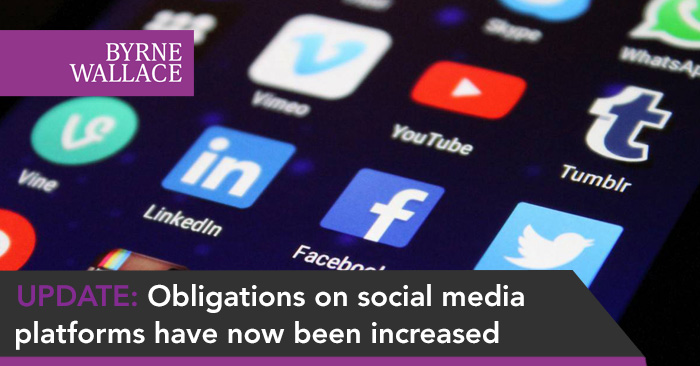Thumbs up to taking down defamatory content online
Friday, 04 October 2019
The European Court of Justice has held that Facebook can be ordered by an EU national court to remove or block access to defamatory comments deemed illegal by the national court, including any identical or equivalent content, and the court order can apply worldwide.[1]
Why is this significant?
EU national courts can now order social media giants such as Facebook to remove defamatory content on their platforms, and to do so in other countries, even if the content is not necessarily illegal in those countries. This sets a very clear tone for how Europe seeks to deal with the ubiquity of the internet in the context of defamation. The European Court’s approach here is far more radical than its recent ruling limiting the scope of the privacy law “the right to be forgotten”.
Case against Facebook
The European Court ruling follows from a complaint made by Eva Glawischnig-Piesczek (Austrian Green politician) to Facebook seeking the removal of comments made about her by a user. The Austrian Supreme Court found the comments to be illegal as they were defamatory and referred questions to the European Court in relation to enforcing their decision against Facebook. For further information on this case and the Advocate General’s Opinion, please click here.
What are the removal obligations?
The ruling means that the EU Directive[2] which is at the heart of the dispute does not prevent social media platforms from being ordered to:
- Identical information - remove or block access on its platform to identical content previously declared unlawful;
- Equivalent information - remove or block access on its platform to equivalent content to that which was previously declared to be unlawful. This is limited to information conveying an essentially unchanged message, and any difference in the content is not to such an extent that would require an independent assessment. In other words, automated technologies and search tools could identify that content on social media platforms with little difficulty;
- Scope - remove or block access on its platform to illegal content covered by the injunction on a worldwide scale, and within the framework of the relevant international law.
What happens next?
It is now up to the Austrian Supreme Court to determine the extent of the removal obligations to be applied in the particular case in light of the European Court’s ruling. The likely outcome is that Facebook will have to remove the defamatory content, irrespective of where in the world identical or equivalent content, meeting the above criteria, is posted by a user. This sets a strong precedent going forward and places greater obligations on social media platforms to remove the same or similar content in other jurisdictions by reason of it being deemed defamatory in an EU country.
For further information or advice, please contact Mark O'Shaughnessy or any member of the ByrneWallace Reputation Management or Litigation & Dispute Resolution Team.
To register for ByrneWallace updates click here, and follow us on Linkedin.

